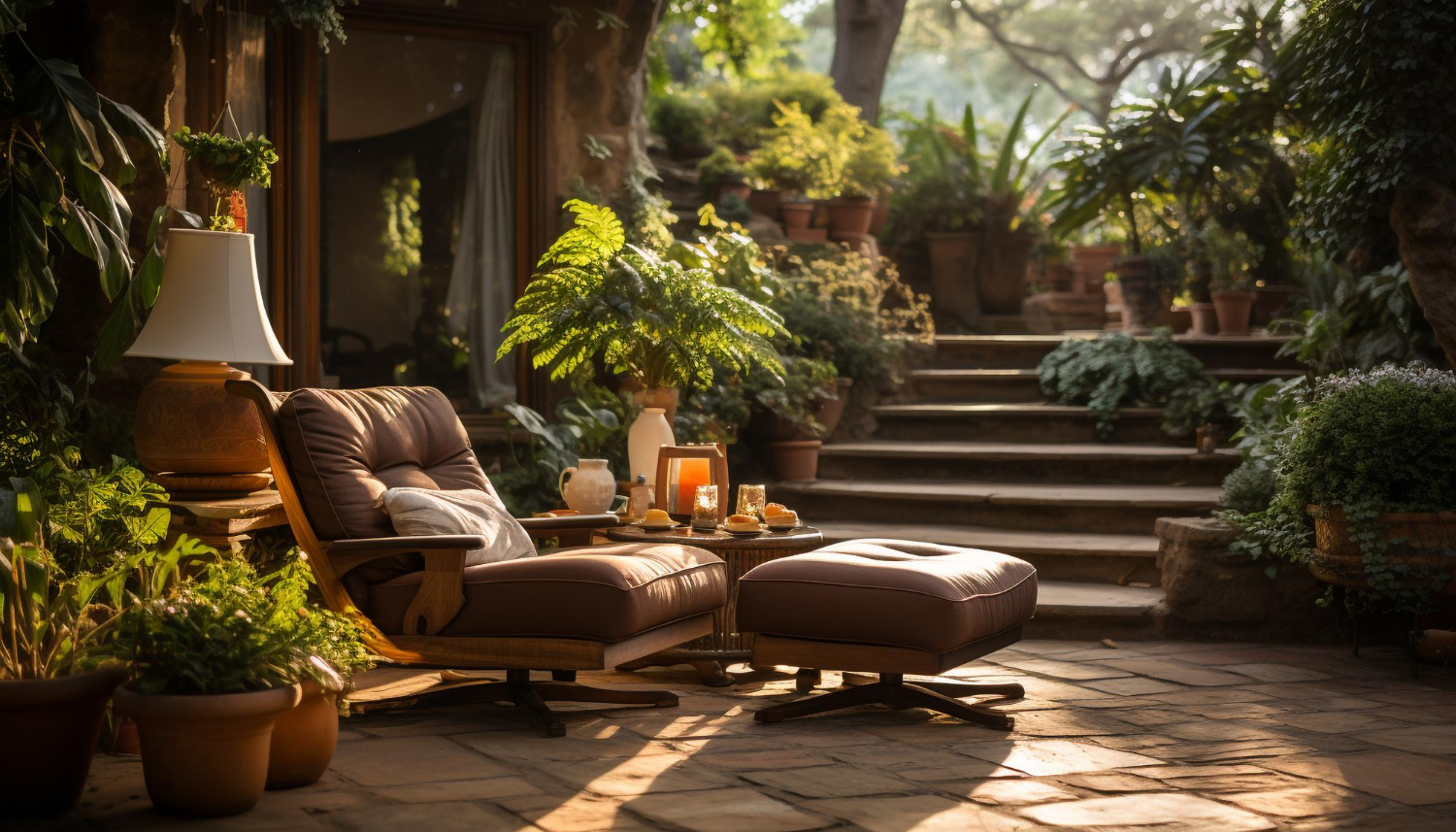The Art of Modern Garden Design: Crafting a Haven for Relaxation and Outdoor Recreation

In the realm of contemporary lifestyles, where the buzz of technology and the pace of daily life often seem overwhelming, there exists a growing yearning for spaces of tranquility and natural beauty. This innate desire to reconnect with nature has spurred a remarkable evolution in garden design, transforming ordinary backyards into picturesque retreats that not only soothe the soul but also serve as a canvas for personal expression and creativity.
The Fusion of Functionality and Aesthetic in Modern Gardens
In the modern garden, functionality merges seamlessly with aesthetic appeal. Gone are the days when gardens were mere patches of greenery or utilitarian plots for growing vegetables. Today, they embody a harmonious blend of form and function, meticulously crafted to serve as extensions of the living space. The contemporary garden designer cleverly integrates elements such as seating areas, fire pits, and outdoor kitchens, transforming these spaces into versatile arenas for relaxation and entertainment.
These gardens often reflect a minimalistic yet sophisticated style, marked by clean lines and a restrained color palette. The emphasis is on creating a sense of serenity and simplicity. Materials like natural stone, wood, and steel are commonly used, adding a touch of elegance while ensuring durability and ease of maintenance. This approach to garden design not only enhances the aesthetic value of the space but also makes it more practical and enjoyable for everyday use.
The Role of Sustainability and Eco-friendliness
As we become more conscious of our impact on the environment, sustainability has become a crucial aspect of modern garden design. The trend leans heavily towards eco-friendly practices, such as using native plants that are well-suited to the local climate and require less water and maintenance. These gardens often feature drought-tolerant landscapes, known as xeriscaping, which not only conserve water but also create a unique aesthetic that celebrates the beauty of resilient, native flora.
In addition, the incorporation of organic gardening practices, composting systems, and rainwater harvesting methods reflects a deep respect for nature and a commitment to preserving our planet. These sustainable practices not only benefit the environment but also offer a sense of fulfillment and connection to the earth, as gardeners become active participants in the stewardship of their natural surroundings.
The Integration of Technology and Smart Gardening
In an era where technology permeates every aspect of our lives, it is no surprise that it has made its way into garden design. Smart gardening tools and systems have become increasingly popular, offering convenience and efficiency to the modern gardener. Automated irrigation systems, app-controlled lighting, and soil moisture sensors are just a few examples of how technology is being used to enhance the gardening experience.
These technological advancements allow for more precise control over the garden environment, enabling gardeners to create optimal conditions for plant growth and health. Additionally, these smart systems can lead to significant water and energy savings, aligning with the eco-friendly ethos that is central to modern garden design.
Personalization and Creative Expression in Garden Spaces
One of the most enchanting aspects of modern garden design is the opportunity it presents for personalization and creative expression. Each garden becomes a unique reflection of its owner’s personality and style. Whether it’s through the choice of plants, the design of pathways, or the selection of outdoor furniture, every element offers a chance to imprint personal taste and character.
Artistic features such as sculptures, water features, and bespoke garden installations add an extra layer of individuality. These elements not only serve as focal points within the garden but also create an immersive experience that stimulates the senses and evokes emotion. The modern garden is not just a space for leisure and recreation; it is an ever-evolving work of art that tells a story and captures the essence of those who tend and enjoy it.
In conclusion, the modern garden is a multifaceted entity that transcends traditional notions of what a garden should be. It is a space of refuge, a testament to sustainability, a playground of technological innovation, and a canvas for artistic expression. As we navigate through the complexities of modern life, these gardens offer a sanctuary where we can pause, reflect, and reconnect with the natural world, reminding us of the simple pleasures and profound beauty that lie just beyond our back doors.
